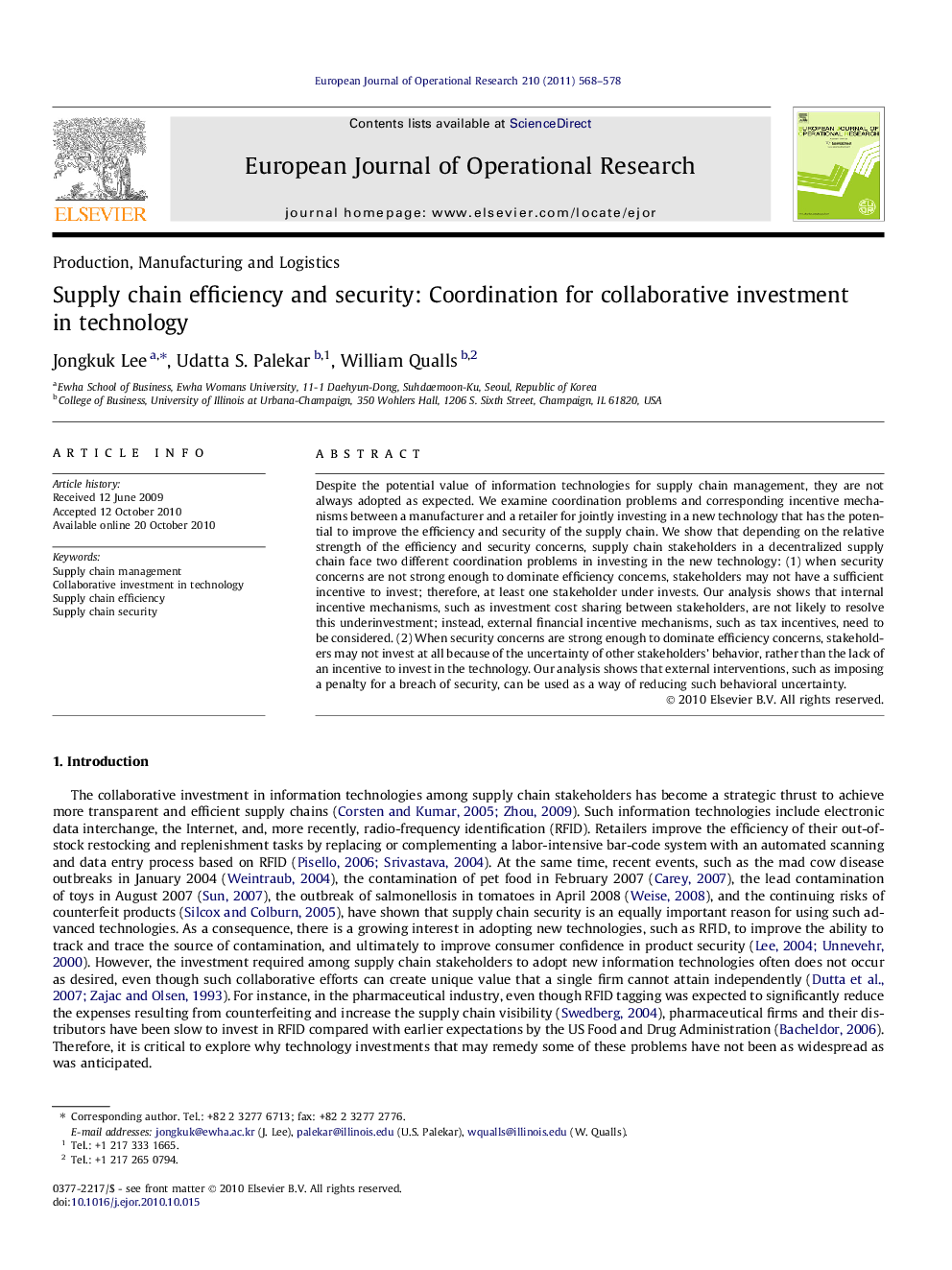| Article ID | Journal | Published Year | Pages | File Type |
|---|---|---|---|---|
| 478535 | European Journal of Operational Research | 2011 | 11 Pages |
Despite the potential value of information technologies for supply chain management, they are not always adopted as expected. We examine coordination problems and corresponding incentive mechanisms between a manufacturer and a retailer for jointly investing in a new technology that has the potential to improve the efficiency and security of the supply chain. We show that depending on the relative strength of the efficiency and security concerns, supply chain stakeholders in a decentralized supply chain face two different coordination problems in investing in the new technology: (1) when security concerns are not strong enough to dominate efficiency concerns, stakeholders may not have a sufficient incentive to invest; therefore, at least one stakeholder under invests. Our analysis shows that internal incentive mechanisms, such as investment cost sharing between stakeholders, are not likely to resolve this underinvestment; instead, external financial incentive mechanisms, such as tax incentives, need to be considered. (2) When security concerns are strong enough to dominate efficiency concerns, stakeholders may not invest at all because of the uncertainty of other stakeholders’ behavior, rather than the lack of an incentive to invest in the technology. Our analysis shows that external interventions, such as imposing a penalty for a breach of security, can be used as a way of reducing such behavioral uncertainty.
